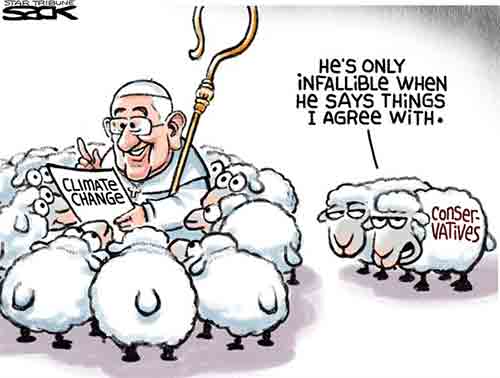
Many readers here will know of the recent controversy in the Church of England. The Crown Nominations Commission nominated Philip North to be the next Bishop of Sheffield. But Philip North believes that women cannot be priests. And when he was ordained bishop, no one who had ordained a woman laid hands on him. So that would mean the CofE would have had a diocesan bishop who believed that a lot of the people termed “priests” in his diocese are “priests” (as in – lay people dressed as priests attempting to do priest things), not priests.
Long story short: the controversy that erupted concluded with Philip North withdrawing his acceptance.
There is analysis everywhere about this. And I don’t want to debate those details here. If you want to debate the Philip North story, there’s plenty of places to do that.
I want to dig a little deeper.
There’s an interesting analysis of the story being about believing that sacraments actually mean what we say they mean.
There’s also analysis that this controversy models the inability of holding together those for and those against blessing committed same-sex couples. Again – there’s plenty of places you can discuss committed same-sex couples.
But, in this post, I want to dig yet a bit deeper. For, I think, this is about authority. Who or what has authority in Christianity? Who or what, for example, can decide whether women can be priests or not?
It is all very well to have a business model of Christianity where those who are likeminded stay together within one church organisation, one denomination. This model would say, to shift the example into the business model, that my desire to sell digital watches does not fit within our company of wind-up watchmaking and my group will have to separate and form our own independent company. But, is that really the model for how we want to view the faith of following Jesus? Isn’t there some sort of authority that can say authoritatively: yes or no – watchmaking, from now on, includes digital watches?
The Bible-alone as authority clearly doesn’t work. Bible-alone people often cannot agree with each other. Even on pretty basic stuff. Of all authority options, Bible-alone is the fastest dividing. They are the ones who most follow the above business model of Christianity.
Then there’s Bible-and-tradition. Well that’s quickly divided into: tradition just refers to the history of different interpretations of the Bible; and those that see the Bible within the church’s tradition. Either way, I don’t see a strong, clear, single authority.
Roman Catholicism can reply with a pope-as-authority approach, which seems to work best of all within the Christian spectrum. The irony, currently, is that those who are most strongly the advocates of the pope-as-authority approach don’t like the current pope and often argue against what he is teaching. Sure, we can focus on infallible teaching, but it’s pretty difficult (read impossible) to find an infallible list of infallible teaching.

Might we dig another level deeper… to a level that many may not want to entertain, but it just might strike us as we lie awake in the darkness of the night…
When we want Christianity to be a revealed religion of a list of truths that we can tick off, do we struggle to describe what the list includes and what it excludes, and how such a list is produced?
What do you think?
If you appreciated this post, consider liking the liturgy facebook page, using the RSS feed, and/or signing up for a not-very-often email, …




I think, and correct me if I’m wrong, but you are describing the tension between the church being modern and post-modern?
One of the teachings that I have embraced fully as a Roman Catholic is the primacy of the individual conscience. This is not to say that the individual always knows what is true, but that he or she must act upon what the individual knows and understands of God. It is often a painful process, one with twists and turns, disappointments, and rather a great amount of work. And it is a process that works hand-in-hand with the truths of the Bible, tradition, and the power of the Holy Spirit.
For instance, it would be easy for me to express my utter disinterest in the trinity; it is not anything more than a mystery (as described by my church) and a matter of faith. The message, I suppose, is believe this at your peril. But it is something irrational, unproved, untested this three-in-one nonsense. Yet I pause before the wisdom of the past and know just enough to keep my ears and heart open.
And, anyway, aren’t we all going to argue over things until our final deliverance? Perhaps argument–discussion–will help us focus on what’s important, but the type of discussion I hear most often, sadly, is the proving of a point, the forcing of an agenda, the braggadocio of an intellect, stubborn resistance to change… Argument ought, first, to be an act of love. Lacking that, I would look elsewhere for wisdom.
And I’m well aware of the work of darkness, though this type of thing seems to embarrass ‘modern’ Christians. Is there a Satan? I don’t know, but I certainly see the ignorance and disinformation that is served up by so many people whose goals are beyond my understanding. (Or should I say, beyond my endurance?)
Bosco, this rings very true from a Scottish Presbyterian perspective. Ministers are allowed freedom of conscience in all matters that do not concern “the substance of the faith.” But “the substance of the faith” is not clearly defined.
Thank you for an excellent reflection on a very difficult subject.
It would be trivial to write an infallible list of infallible teachings, but it would be small and not include the issues under contention in this post; and neither would it include all infallible teachings. The point of having a Pope is to have an agreed authority for deciding contentious issues, for which infallibility or irreformability are very seldom required.
Given the illustration above, have you considered going back to Moses ?
Are women made in the image of God or not ? Gen1.
Is the sacrifice offered (the essence of priesthood) by a woman valid or not ?
“Women could offer the sacrifice and hold a Passover Seder themselves if they wished, even if married.”
“Women could slaughter their sacrificial animals themselves if they wished.”
https://en.wikipedia.org/wiki/Korban#Women_and_offerings
Are blessings efficacious regardless of the supposed questionableness of those blessed ? Gen27.
“Such blessing or cursing did not involve the use of empty words, but implied the exercise of a real power; the word once pronounced was no more under the control of the speaker (Gen. xxvii. 35), and must perforce accomplish its mission.”
http://www.jewishencyclopedia.com/articles/3369-blessing-and-cursing
If it’s not in the Torah, it’s not in the world. Mat5:17-19
I suspect we just need to decide if our sacraments and sacramentals are efficacious. That’s more a question of faith than authority.
Have we ever asked whether someone who received these experienced what they profess ? Experience also has authority, and possibly more today than in times past.
Many Blessings
http://churchsociety.org/churchman/archive_page/churchman_vol_124_2010/
Above link gives my view. It is true that those who look to the Bible disagree. But the way forward is by online debate to challenge and defend the strongest arguments from all sides – in a debate open to all, with scholars participating. Those who believe that the Bible is wholly trustworthy are in a large measure of agreement. For example, if God and Christ did say and do, are saying and doing, will say and do all that the Bible says then it is beyond dispute that we are all faced with God’s wrath and condemnation because of our sins. That’s a good place to start.
Thanks, Phil. When I look at your website there is actually little to no debate or challenge – in fact what it calls a “blog” does not even allow for comments! It suggests people let you know what they think on the facebook page. There, occasionally, there are one or two comments but no real debate. Claiming that “Those who believe that the Bible is wholly trustworthy are in a large measure of agreement” does not make it so – especially when those who declare such a position are so manifestly fissiparous. Blessings.
The link I gave was not to a discussion site but to an article that Churchman printed. My article calls for the setting up of such a site so that all (if they want) can give their views and challenge and be challenged. To be of benefit scholars would have to participate. You exaggerate how ‘fissiparous’ we are. Those who believe the Bible is true are largely agreed on many truths. The site I am calling for would confront us all with the strongest arguments from all sides on disputed points, such as those I mention in the article. My article is saying that the ‘private judgment’ rules are the right rules. But that does not mean that we can believe whatever we want to believe. We have to face up to the strongest arguments against our views and submit to what the Bible says in conscience before God – as you will see if you have read the article.
Phil
Thanks, Phil. If you click on the link you previously provided, you will see you end up on a page of a website which includes the “blog” I refer to. I now suspect that you thought you had provided this link. Blessings.
Yes, you are right. The link I provided takes you to a page which has the edition of Churchman which contains the article (the first article in that edition)
Phil